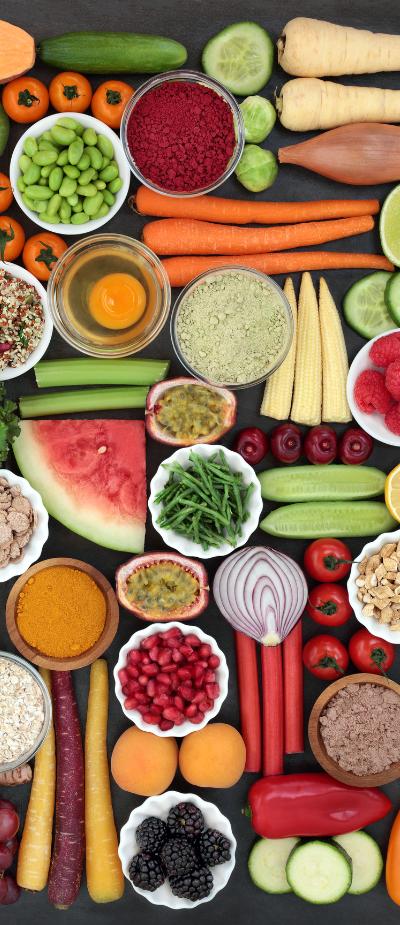As we age, certain nutritional needs become more important than ever. Eating the right foods can boost our overall health and well-being significantly as seniors. To help ensure that seniors are getting the proper nutrients to maintain their vitality, it’s important to include these top 10 superfoods in our diets. From blueberries to salmon, these powerhouses of nutrition have been shown to provide a variety of health benefits for older adults, including increased energy levels and improved immunity.
With regular consumption, seniors can enjoy a healthier body and mind while still enjoying delicious meals. Read on to learn more about how these top 10 superfoods can benefit you or your loved ones as you age gracefully!
The Importance of Superfoods in a Senior’s Diet
It’s no secret that the foods we choose to eat can play a major role in our overall health. Eating the right mix of superfoods can help seniors maintain their mental sharpness, boost their immunity, develop stronger bones and muscles, and even reduce the risk of certain chronic diseases such as heart disease and diabetes.
Eating right doesn’t have to be time-consuming or boring; it can be simple and delicious. Incorporating the top 10 superfoods for seniors into your diet is a great way to ensure that you are getting the proper nutrients necessary for optimal health in your golden years.
These are our 10 picks:
- Blueberries: These little blue superfoods are packed with antioxidants that can help reduce inflammation and protect against cell damage. Eating a handful of blueberries each day can provide seniors with vitamins C and K, as well as manganese for healthy bones.
- Salmon: This fatty fish is an excellent source of omega-3 fatty acids, which are important for good heart health. Eating salmon a few times per week can help seniors maintain healthy blood pressure and even reduce the risk of stroke.
- Spinach: This leafy green is an excellent source of vitamins A, B6, C, and K, as well as magnesium, potassium, and iron. Eating spinach regularly can help seniors boost their immunity, improve digestion and even reduce the risk of certain types of cancers.
- Sweet Potatoes: Rich in antioxidants, fiber, and vitamins A and C, sweet potatoes can help seniors maintain a healthy blood sugar level and keep their energy levels up throughout the day. Including this delicious vegetable in your diet is a great way to enjoy more nutrients without sacrificing taste.
- Avocado: This tasty fruit is loaded with heart-healthy monounsaturated fats. Eating avocados regularly can help seniors maintain healthy cholesterol levels and reduce the risk of developing certain chronic diseases.
- Nuts: Nuts are packed with protein, fiber, and healthy fats which can help keep seniors feeling full for longer. Eating a handful of nuts each day can provide seniors with a range of essential vitamins and minerals, including magnesium and vitamin E.
- Kale: This leafy green vegetable is one of the most nutrient-dense foods on the planet! It’s bursting with vitamins A, C, and K, as well as calcium and iron. Eating kale regularly can help seniors maintain their immunity while also improving bone health.
- Whole Grains: Whole grains are full of fiber and important vitamins and minerals such as B vitamins, magnesium, and iron. Seniors who eat whole grains regularly tend to have a lower risk of developing type 2 diabetes.
- Beets: These bright red veggies are packed with antioxidants that can help seniors fight off inflammation. Eating beets can also help seniors maintain healthy blood pressure levels and improve their overall cardiovascular health.
- Yogurt: Fermented with probiotics, yogurt can help seniors boost their immunity while providing them with calcium for strong bones. Seniors who eat yogurt regularly are also less likely to suffer from digestive problems due to its beneficial bacteria content.
Bonus
- Dark Chocolate: For those with a sweet tooth, dark chocolate is a great way to satisfy your cravings while also providing some healthy benefits. Dark chocolate is packed with antioxidants and can help seniors lower their blood pressure levels and reduce their risk of stroke.

FAQs About Healthy Eating for Seniors
Q: How often should seniors eat superfoods?
A: Eating superfoods as part of a regular balanced diet is generally recommended for seniors. However, it’s important to speak with your doctor or nutritionist to determine the best meal plan for you and your individual needs.
Q: Is there any way to make superfoods taste better?
A: Absolutely! The key is to find ways to make healthier food choices enjoyable. For example, adding nuts and dried fruit to yogurt or oatmeal can help you get the nutrients you need without sacrificing taste. Another great way to enjoy superfoods is by blending them into smoothies for a delicious and nutritious snack.
Q: Are there any superfoods that should be avoided by seniors?
A: It’s important to speak with your doctor or nutritionist before making any major dietary changes. In general, unhealthy processed foods and sugary snacks should be avoided. Additionally, it’s best to limit or avoid certain types of fish like swordfish and mackerel due to their high mercury content.
Conclusion
By incorporating these top 10 superfoods into your diet regularly, you or your loved ones can enjoy the many health benefits that they provide for seniors. Whether eaten alone or as part of a meal, these powerhouses of nutrition are sure to have you feeling your best as you age gracefully.
By following this simple list and including more superfoods in your diet, seniors can enjoy a higher quality of life with fewer health issues. Have fun with it and don’t forget to experiment with new recipes that include these superfoods.
And for those Medicare beneficiaries in Miami be sure to book a visit to Santos Medical Centers.
Bon appétit!


